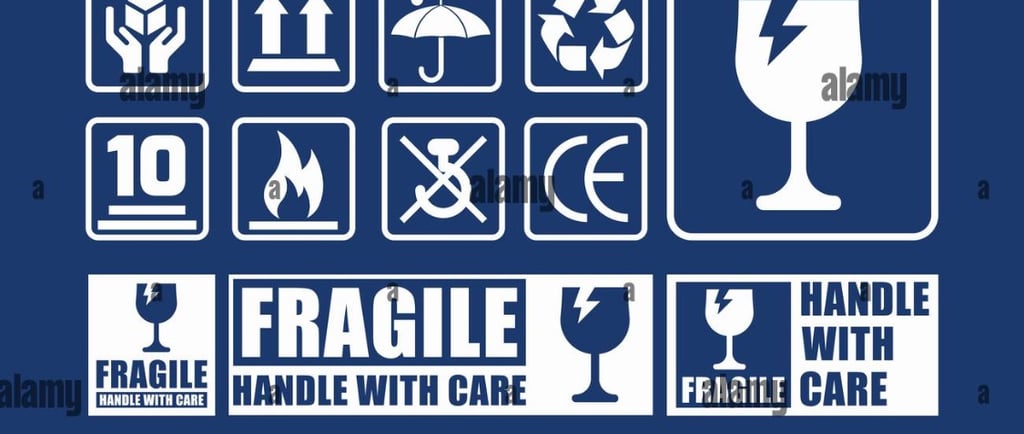Handle with Care: early reflections on the tensions in our Capitalism Escape Room project
The Capitalism Escape Room is a six-month collaborative project, funded by The Studio in Bath’s Innovation Fund, to develop a prototype. This reflection explores the tensions within the project.
CAPITALISM ESCAPE ROOMSTUDIO INNOVATION FUNDPLAYBATH AND BRISTOL
Stephen Hilton
2/13/20253 min read


Earlier today, our team gathered for our third capitalism escape room team meeting — a project that is equal parts research, experiment, thought exercise, and a purposeful intervention. Now, sitting at home in the evening, I find myself reflecting on the tensions woven into our discussions, the paradoxes that keep surfacing, and the challenge of imagining our way out of a system that structures so much of our reality.
At the meeting, Claudia handed us an empty cardboard box. A simple, everyday object - but one that suddenly became a metaphor. What if the escape from capitalism is not about breaking free through ‘winning the game’ - but through imagination? What if, instead of a pre-packaged experience, we started with nothing but possibility?
That box triggered a cascade of thoughts, some of which I captured in word pairs that reflect the underlying tensions in our work:
• Playfulness vs. Atomisation
• Echoes vs. Engagement
• Urgency vs. Slowness
• Extraction vs. Generosity
Playfulness vs. Atomization
The idea of play is central to our project. But what kind of play? Many people - especially in creative circles - resist organised fun, the kind of gamified experience designed for them rather than by them. Capitalism loves structured leisure: from escape rooms to team-building exercises, even our play is often packaged and sold back to us.
But play can be spontaneous, open-ended, and deeply radical. What if we simply offered an empty box and invited people to imagine what was inside? What if we drew a line on the floor and told participants that, once crossed, they had entered a future beyond capitalism? With nothing but a shift in perspective, entire new possibilities open up.
At the same time, we spoke about capitalism’s ability to isolate us. It defines us as individual units - self-sufficient, competitive, responsible for our own survival. The words that surfaced during our discussion—loneliness, competition, separation — highlighted how deeply ingrained this atomisation is. Yet, even in discussing these things, we found connection, laughter, and solidarity. Perhaps part of escaping capitalism is rediscovering the joy of simply being together.
Echoes vs. Engagement
A question that keeps returning: are we just talking to ourselves?
In our group, we all share a critical stance towards capitalism. But outside such circles, public discussion of economic alternatives is hard to find. Governments, institutions, and media outlets remain fixated on growth and market solutions. How do we engage with those who don’t yet share our views? How do we move beyond critique and into conversations that bring in people who are comfortably working within — and benefiting from — the current system?
There’s a comfort in echo chambers, but also a risk. If we are serious about imagining an alternative, we need to have difficult conversations, not just among ourselves but with those who don’t yet see the need for change.
Urgency vs. Slowness
I always leave our meetings feeling like we should be doing more, faster. But this urgency ironically feels like a very capitalist impulse. It’s deeply linked to funding cycles: we have resources now, but they won’t last forever. What happens when the money runs out? Will the momentum fade?
This pressure to produce within tight timelines mirrors the very system we are critiquing. And yet, real transformation often requires deep thinking, and long-term relationships - “Slowmentum!” Do we embrace speed while we have the chance? Or do we resist the impulse to rush, trusting that meaningful change unfolds on its own timeline?
Extraction vs. Generosity
At today’s meeting, I made lunch for everyone - except for those who joined online (sorry, Sunnie!). There was something grounding in the act of preparing, bringing, and sharing food. Eating together is one of the oldest human rituals, a reminder that connection is built through small, everyday acts.
But this also made me think about the nature of research. Even well-intentioned projects like ours can become extractive: asking for people’s time, ideas, and energy without always giving back. How do we ensure that we are not just taking but also contributing? How do we use the resources we’ve been given — our funding, our networks, our time — to support others rather than simply advance our own agenda?
Where Next?
These tensions — between play and isolation, urgency and patience, engagement and insularity — are not problems to be solved. They are the conditions of working within and against capitalism. There may be no single “exit” from the system, but perhaps the act of questioning, imagining, and creating together is itself a form of escape.
As I finished recording these thoughts, my doorbell rang — life interrupting theory, as it always does. But maybe that’s the real lesson. Change isn’t just something we plan or strategise; it’s something we live, in the small moments of care, connection, and imagination that remind us another way is possible
Click HERE to register your interest in the Capitalism Escape Room project
